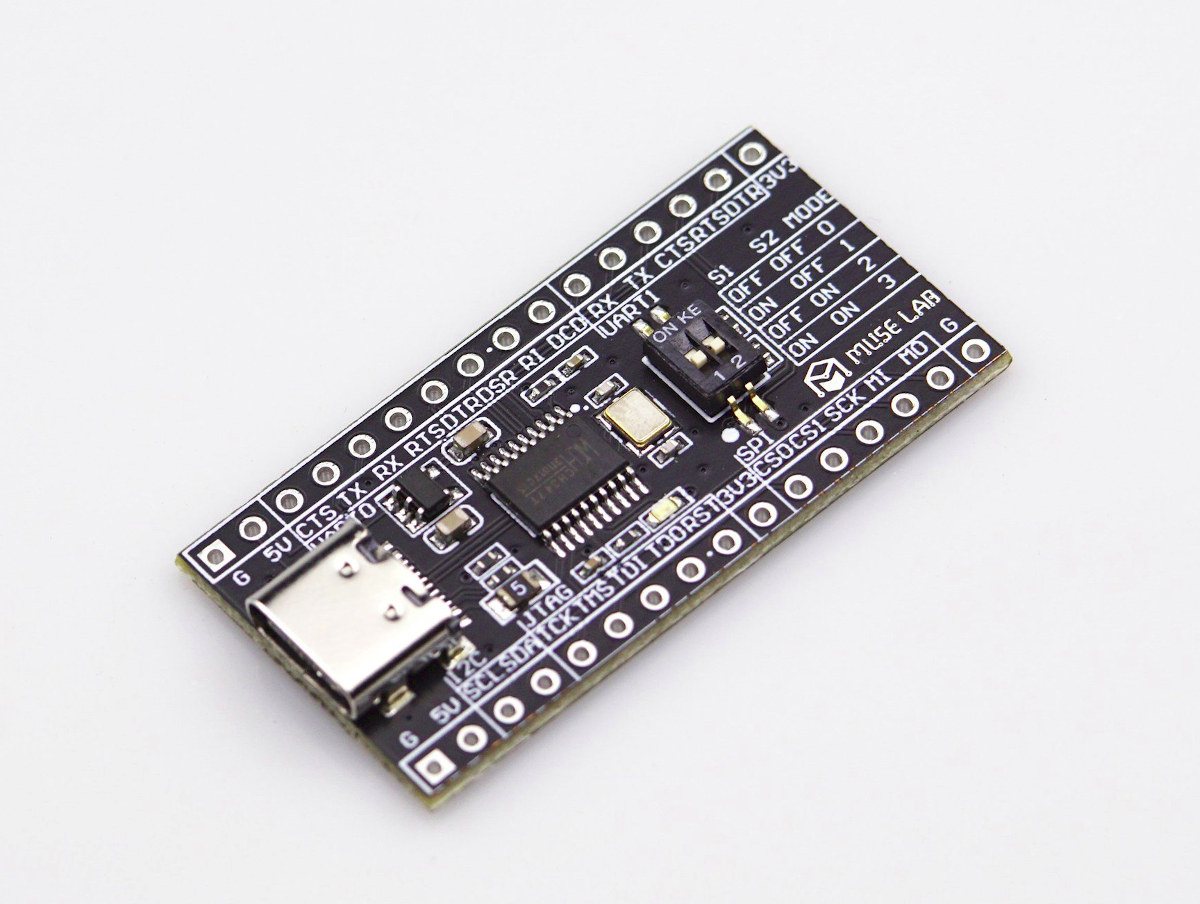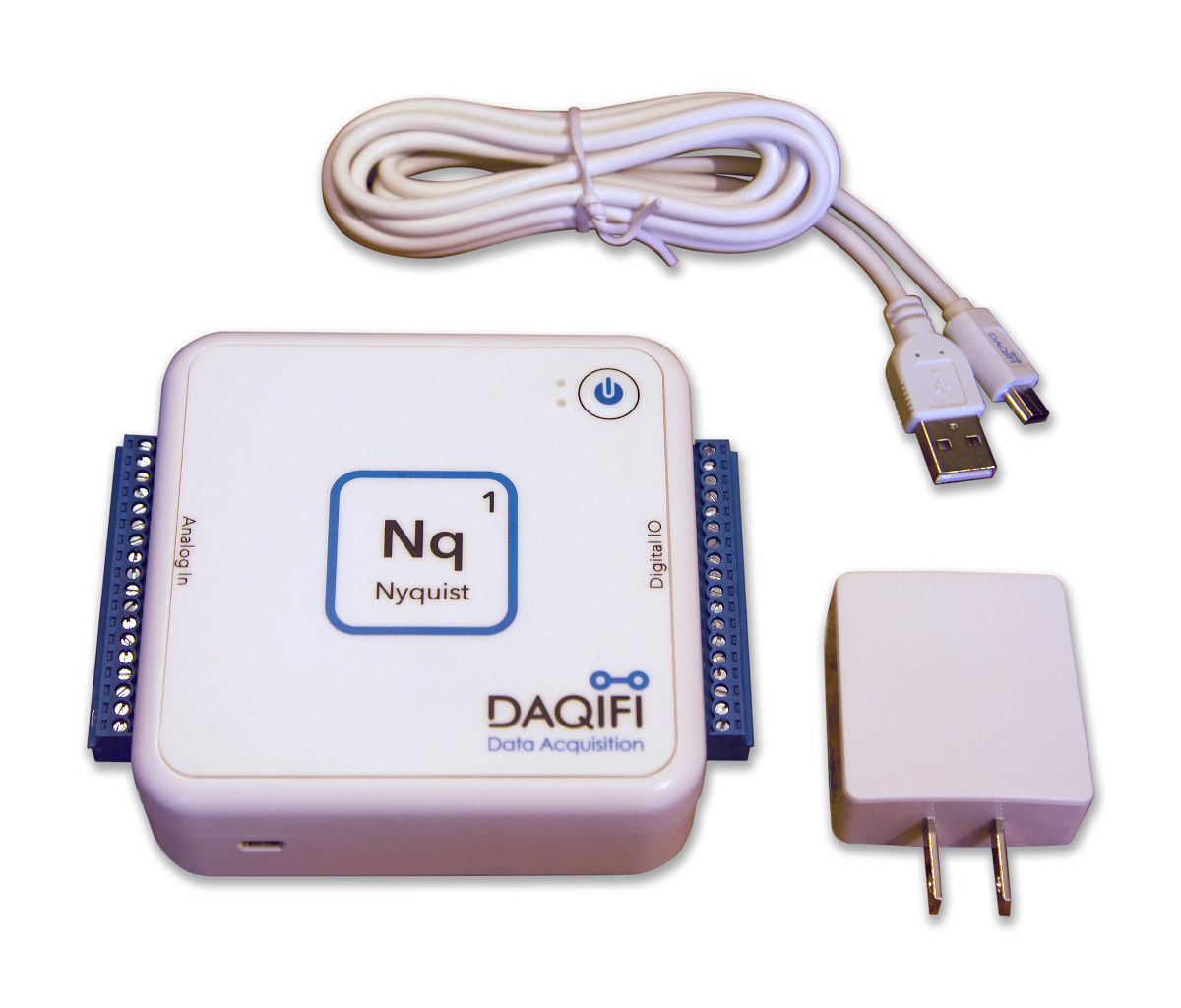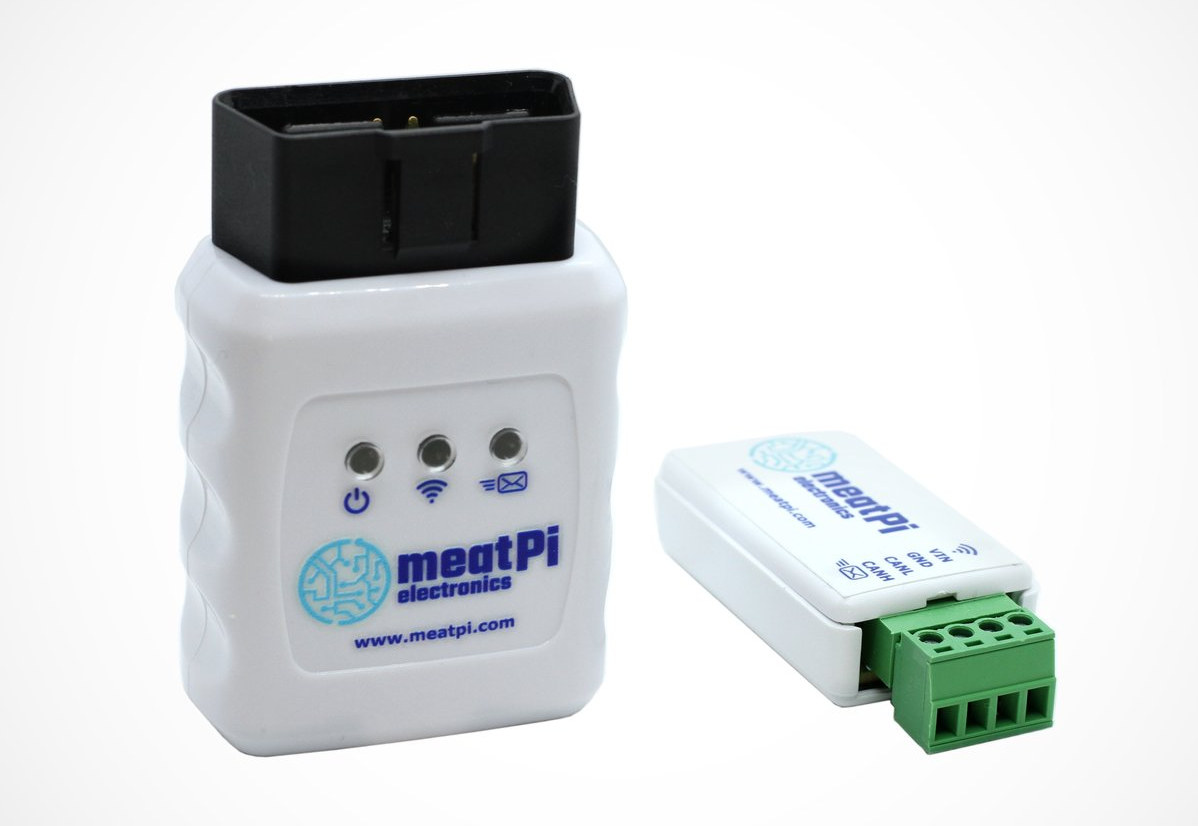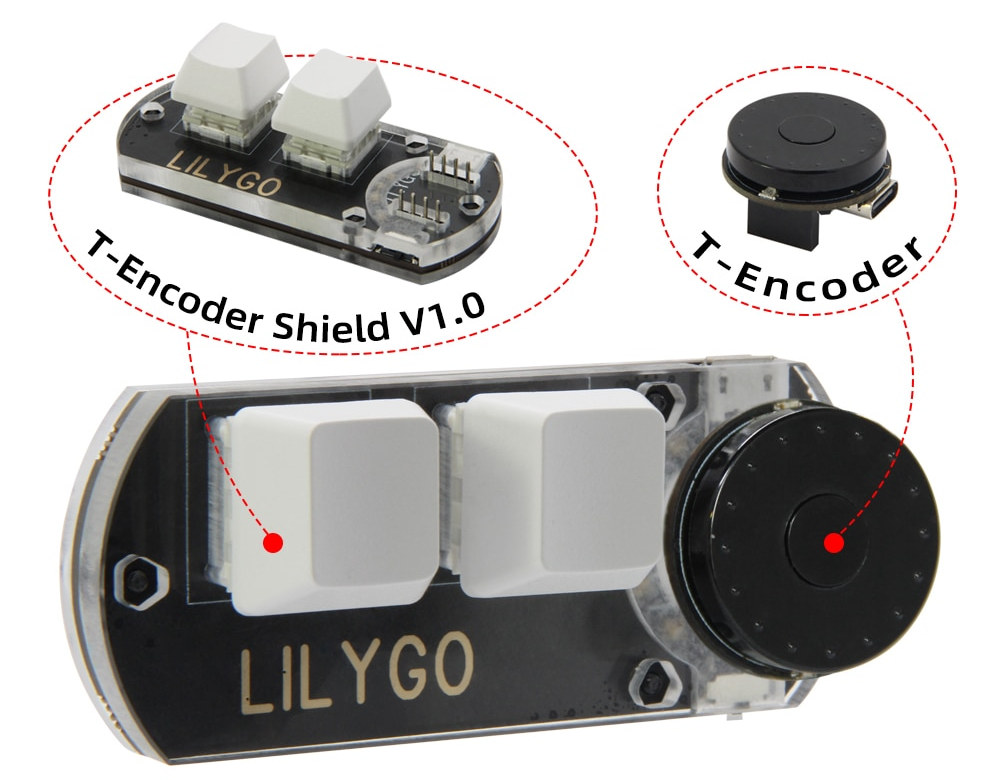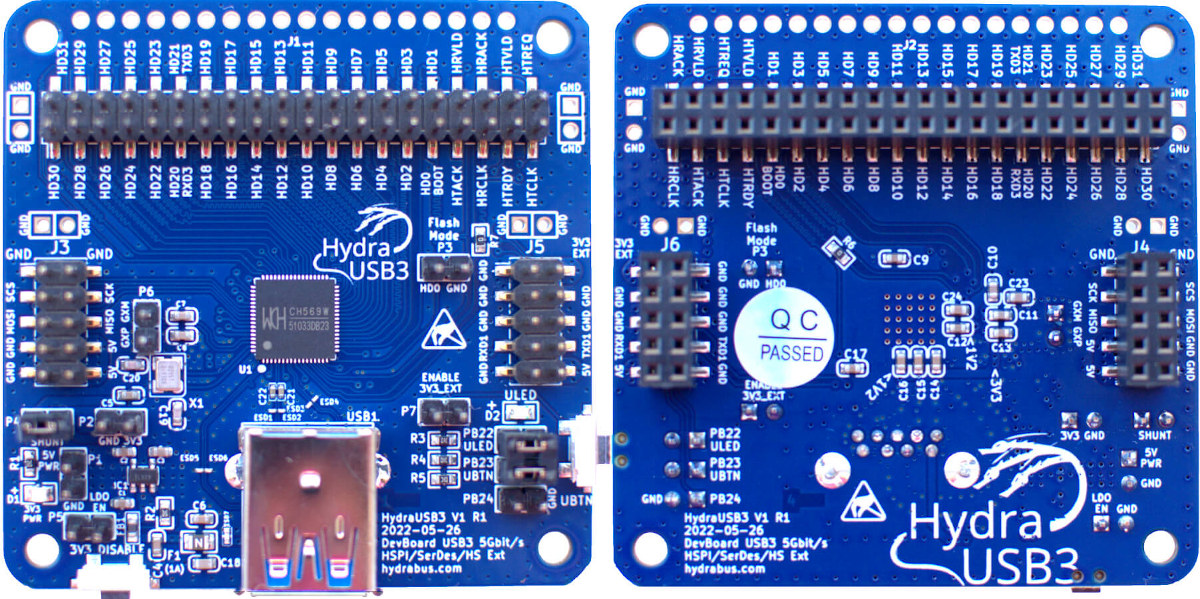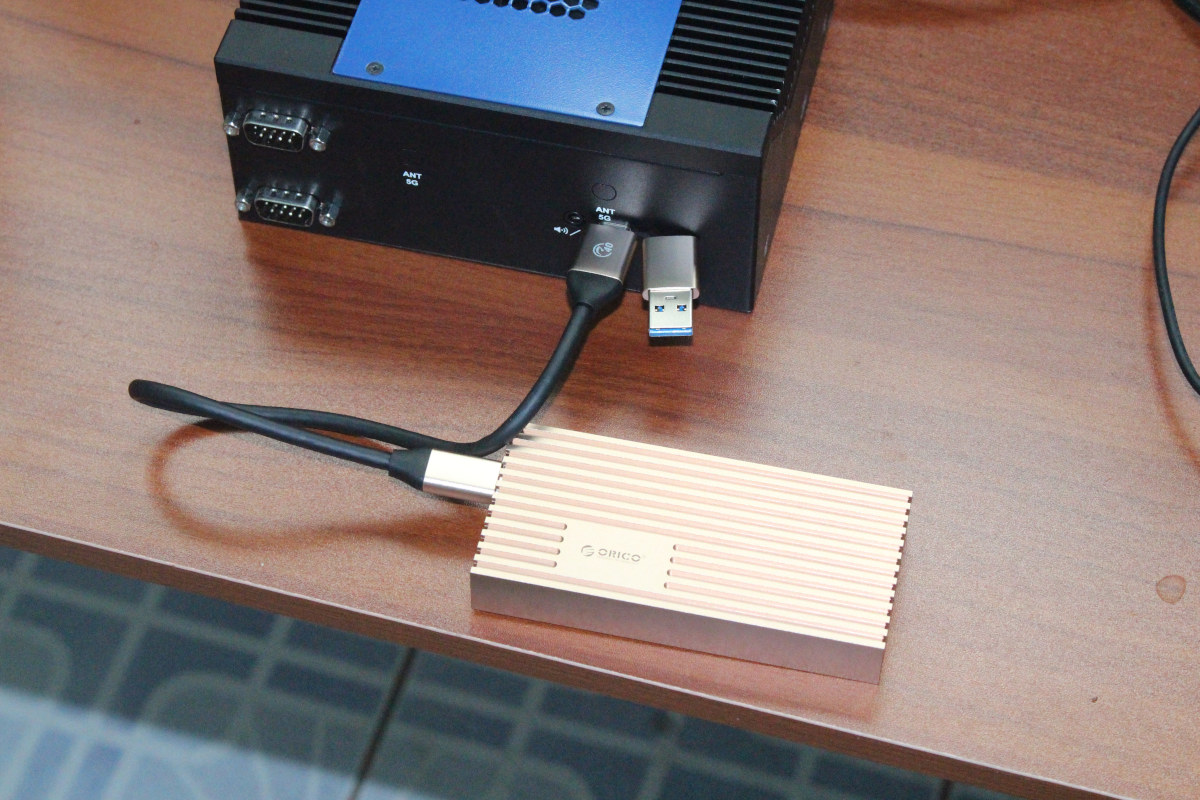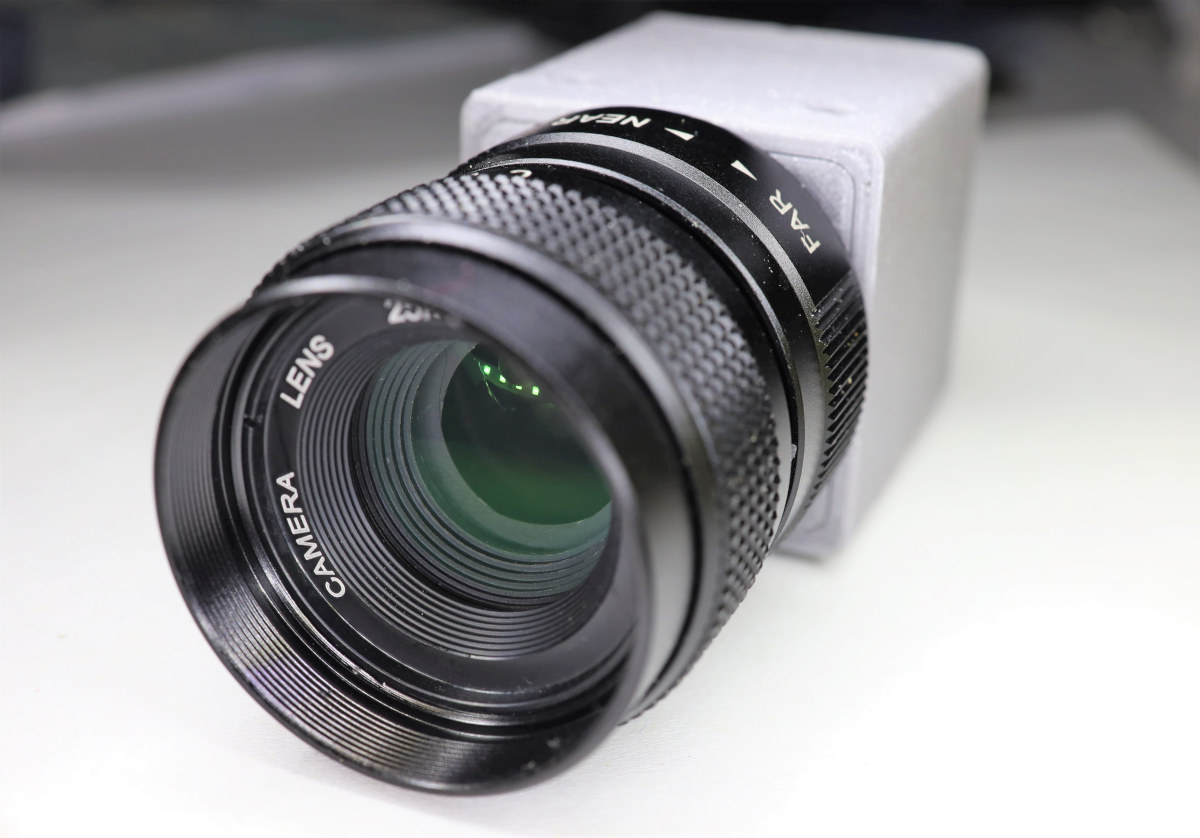The USB Promoter Group has just pushed a press release about the “pending release” of the USB4 Version 2.0 specification that promises up to 80 Gbps of data performance over the USB Type-C cable and connector. The group also explains both the USB Type-C and USB Power Delivery (USB PD) specifications will also be updated, and everything will be published right before the USB DevDays developer events planned for November 2022 in the US and South Korea. So that’s basically an announcement about a future announcement, but we were still provided with some highlights of the upcoming USB4 v2 specification: Up to 80 Gbps operation based on a new physical layer architecture, using existing 40 Gbps USB Type-C passive cables and newly-defined 80 Gbps USB Type-C active cables. Updates to data and display protocols to better use the increase in available bandwidth. USB data architecture updates now enable USB 3.2 […]
$5 CH347 board is a USB 2.0 bridge to I2C, SPI, UART, JTAG, and GPIO
MuseLab USB-HS-Bridge is an inexpensive ($5) board based on WCH CH347 chip with a USB 2.0 Type-C interface that acts as a bridge for I2C, SPI, UART, and JTAG interfaces, as well as GPIOs. It’s notably useful to debug and download bitstreams to FPGA development boards, but it can also be used to connect various peripherals such as I2C sensors, SPI flash devices, UART devices to basically any host with a spare USB 2.0 host port. USB-HS-Bridge specifications: Chip – WCH CH347 high-speed USB to UART, I2C, SPI and JTAG chip (See link to the datasheet for details) USB – 1x USB 2.0 Type-C port with up to 480 Mbps data rate I/Os – 2x 16-pin header with 2x UART interfaces up to 9 Mbps baudrate 1x I2C for EEPROM or sensors 1x SPI master interface with 2 chip select signals to control up to 2x SPI slave devices. The […]
DAQiFi Nyquist 1 – A battery-powered Wi-Fi IoT data acquisition system (Crowdfunding)
DAQiFi Nyquist 1 is a battery-powered IoT data acquisition (DAQ) device that works over an 802.11n Wi-Fi connection or a USB interface, and can also log the data to a microSD card Equipped with 16 digital I/Os and 16 analog inputs, the Nyquist 1 can be used with all sorts of sensors to measure force and strain, pressure, temperature, current & voltage, luminosity, weight, pH angular velocity, and more. It’s also possible to connect multiple Nyquist 1 devices to a single PC instead of following the traditional method of having one dedicated PC plugged into each data acquisition solution. DAQiFi Nyquist 1 hardware specifications: MCU – Unspecified Microchip microcontroller Storage – MicroSD card slot for data logging Wireless – 802.11n Wi-Fi via Microchip ATWINC1500 wireless module USB – 1x USB 2.0 port 16x analog inputs 0-5V, 12 bit 10 kHz aggregate streaming 160 kHz+ aggregate logging Up to 4 differential […]
WiCAN ESP32-C3 CAN Bus platform is available in USB-CAN and OBD-II form factors (Crowdfunding)
WiCAN is an ESP32-C3 CAN bus adapter that works over USB, Wi-Fi, and Bluetooth LE, and designed for car hacking and general CAN bus development. The device is available in USB-CAN and OBD-II form factors and comes with firmware that works with RealDash to create nice-looking dashboards with the data. RealDash can be installed on Android, iOS, and Windows 10 operating systems. WiCAN specifications: Wireless module – ESP32-C3-MINI-1 with ESP32-C3 RISC-V microcontroller with 2.4GHz WiFI 4 and Bluetooth 5.0 connectivity, 4 MB flash, PCB antenna CAN 2.0 A/B interface up to 1 Mbps Host interface WiCAN-OBD – OBD-II connector WiCAN-USB – Mini USB port for USB-to-UART up to 6 Mbps Power Supply WiCAN-ODB – 7.5V to 16V (Vbat) WiCAN-USB – 7.5V to 36V via screw-terminal connector Power Consumption – <= 1 mA in battery-saving mode The CAN Bus adapter also supports firmware updates over WiFi, and can be used either […]
ESP32 board with rotary encoder gets 2-key keypad shield
LILYGO TTGO T-Encoder, a round-shaped ESP32 board with a built-in rotary encoder, has gotten a shield with a 2-key keypad based on WCH CH552 8-bit microcontroller. Launched several months ago, the TTGO T-Encoder is a USB-powered rotary encoder with ESP32 microcontroller offering WiFi and Bluetooth connectivity, and now, you can build a keypad with rotary encoder thanks to T-Encoder shield that features two mechanical switches and keycaps with RGB LED backlight. Since we missed it at launch, let’s check out the tiny TTGO T-Encoder board specifications first: System-in-Package (SiP) – Espressif ESP32-PICO-V3-02 with MCU – ESP32 Xtensa dual-core 32-bit Xtensa LX6 microcontroller up to 240 MHz, 448 KB ROM for booting and core functions, 520 KB SRAM for data and instructions, 2.4 GHz WiFi 4 and Bluetooth 4.2 BR/EDR + LE connectivity Memory – 2MB SPI PSRAM Storage – 8MB SPI flash Dimensions – 7×7 mm Antenna – Ceramic […]
HydraUSB3 RISC-V MCU board combines USB 3.0 with HSPI and SerDes high-speed interfaces
Benjamin VERNOUX has launched the HydraUSB3 V1 board based on WCH CH569 RISC-V MCU as a developer platform to experiment with high-speed protocols like HSPI and SerDes through a USB 3.0 interface. It’s the third board from Benjamin we feature here, after the STM32-based HydraBUS and the HydraNFC v2 shield delivering up to 1600 mW for NFC charging and connectivity. The HydraUSB3 v1 is quite different since it does not involve NFC at all, and instead leverages the CH569’s high-speed interfaces including USB 3.0 (5 Gbps), HSPI (3.8Gbps), and SerDes (>1.2Gbps). HydraUSB3 V1 specifications: MCU – WCH CH569 32-bit RISC-V (RISC-V3A) RV32IMAC MCU @ 120MHz with 16KB 32-bit SRAM, 96KB configurable 128-bit SRAM, 448KB code flash, 32KB data flash USB – 1x USB 3.0 host/device port that supports the USB 3.0 SS built-in PHY (5Gbps) and USB 2.0 built-in PHY FS/LS/HS (480Mbps) High-speed I/Os High-Speed Parallel Interface (HSPI) up to […]
Mini review of ORICO “USB 4.0” M.2 NVMe SSD enclosure
ORICO has sent me a sample of a USB 4.0 M.2 NVMe SSD enclosure for review, which was timely as I did not have a fast USB storage option for testing. In this post, I’ll check out the hardware, show how to install an NVMe SSD, and test performance in UP Xtreme i11 mini PC since it happens to come with a USB4 port. ORICO USB 4.0 M.2 SSD enclosure specs and unboxing The exact model I received is the ORICO M234C3-U4 with a Rose Gold aluminum enclosure (107x50x17mm), supporting M.2 M-Key and B+M Key 2230, 2242, 2260, 2280 SSDs (more on that later), and offering up to 40 Gbps through its USB 4.0 port. The device ships with a USB Type-C to USB Type-C/Type-A cable, a thermal pad, a heatsink, two screws, and a multilingual user manual. There’s only one USB Type-C port one the device. M.2 NVMe SSD […]
Open-source hardware USB Type-C industrial camera features Lattice Crosslink NX FPGA
Gaurav Singh, acting as Circuit Valley, has designed an open-source hardware USB 3.0 Type-C industrial camera with three boards: one to capture data through a CMOS sensor, another based on a Lattice Crosslink NX FPGA to handle image processing, and finally, a board equipped with an Infineon FX3 USB 3.0 controller for sending the video data to the host. This design allows the DIY camera to be extremely flexible, as for instance, you could keep the FPGA and USB board, and simply change the sensor board for a better/different camera. A 3D printable enclosure is also provided, and the camera supports C-mount lenses, so the lens can also be easily changed as required. Here’s what the final result looks like. Camera specifications: Sensor board Sensor for example Sony IMX290, IMX327, or IMX462 Oscillator FPGA/Host board interface – High-density connector with I2C, 4-lane MIPI with clock, I2C, a few other control […]



